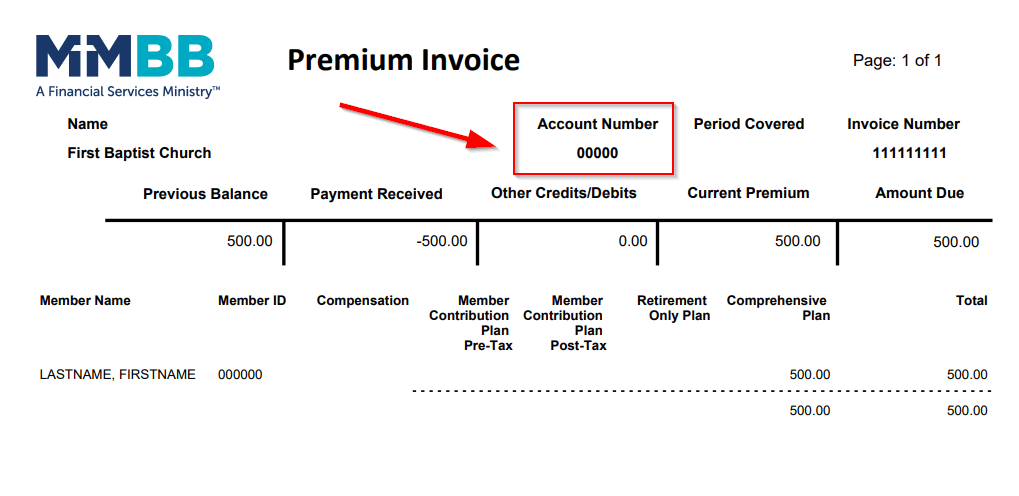Rev. Dr. Patricia Hunter, CFP®
In today’s world, most of us have debt.
One of the keys to achieving financial wellness is learning how to manage that debt.
Debt does not have to be an insurmountable problem
Is debt distracting you from your ministry? As servants of God, we often place the needs of our congregation first, especially when it comes to finances. Salaries paid to pastors and church workers are often lower than comparable positions with similar educational training, so managing debt places an even greater burden on you. When debt goes unaddressed, over time it can grow into a bigger hurdle to overcome.
Getting started on a plan to reduce debt might seem daunting, but the sooner one begins to tackle their financial situation, the easier it will become to manage it. Taking practical steps to manage your debt, such as establishing your financial goals, developing a budget, and eliminating expenses, will put you well on your way to financial wellness.
Establishing your goals
The first step in managing your debt is to establish goals. A simple way to organize your financial goals is to break them down into short-term and long-term.
Short-term goals are quick wins or smaller steps that will have an immediate visible effect on your finances. They start when a plan is put together to adjust spending habits and lifestyle.
Long-term goals are those which you can achieve in two years or more, and typically require additional funds. Setting these goals will enable you to begin to pay off debt, contribute to an emergency or retirement fund, or pay down a mortgage.
When setting your goals remember to be S.M.A.R.T. — Specific, Measurable, Attainable, Relevant and Time-limited. To stay focused, be specific when describing your goals. You also need to be realistic. When people set goals that are overly ambitious, they tend to give up before reaching them. Goals should be difficult to achieve, but not impossible. Prioritize your goals and monitor your progress. Celebrate when you hit a milestone.
Setting S.M.A.R.T. goals helps you stay focused on achieving them. Once your goals are established, it’s time to dive deeper and develop a budget.
Developing a budget
Budgeting is an important component of financial success and allows you to have some control over what you spend. A monthly budget will help you decide how to spend your money, pay off existing debt, and establish regular savings. This will enable you to plan for the future.
The easiest way to start budgeting is to list your income sources, including salary, Social Security, annuities, fixed income payments or stipends. Next, write down every expense you have each month. Some expenses will vary, and might be quarterly or yearly, but be sure to include these, as well.
Once you have a rough draft of your budget, you can compare costs and fine tune as you track your monthly spending. Having a budget allows you to know how much you make, spend, who you owe and how much you owe. Knowledge is power when it comes to getting serious about your savings goals and eliminating expenses.
Eliminating expenses
The final step in managing debt is eliminating expenses. What do your current expenses tell you about your spending behavior? Are there expenses you can get rid of? The “must” expenses (housing, utilities, food, child care, insurance, auto) need to be paid. “Optional” expenses (dining out, luxury items, vacations, movie tickets) should be carefully reviewed.
Once you have identified your sources of income and made a budget of all your expenses, set some realistic goals to reduce costs and increase the amounts being saved for long-term goals. If you’re primarily paying off credit cards and bills, you will need to reduce or eliminate optional expenses.
Review the terms of the bills, and identify interest rates to determine which expenses should be paid off first. As soon as a credit card is paid off and has a zero balance, cut it up. If there is too much temptation to use it again, close the account.
Review and adjust
Review your spending and saving on a monthly basis to track your progress. If you are not where you want to be, adjust your plan accordingly.
You might need an additional source of income if there are no more options for cutting expenses. We often have to learn to make difficult choices regarding money if we want to reach our financial goals.
Remember to celebrate your savings and expense reduction milestones with your family or friends as a way to keep yourself motivated. By addressing debt head on, you will be on the path to reaching your financial goals and creating financial wellness for you and your family.
MMBB Financial Planning Manager Rev. Dr. Patricia L. Hunter, CFP® brings 25 years of experience to her ministry. Before joining MMBB [ mmbb.org ] in 1987, she served as assistant pastor of the Mount Zion Baptist Church in Seattle. She is a graduate of Seattle University, where she taught Womanist Theology and Black Church History. Hunter also has a master of divinity degree from Colgate Rochester Crozer Divinity School and a doctor of ministry degree from the Saint Paul School of Theology (Kansas City, Mo.) In 2008, she earned her certification as a CERTIFIED FINANCIAL PLANNER™ professional.
Back to Financial Resource Center









